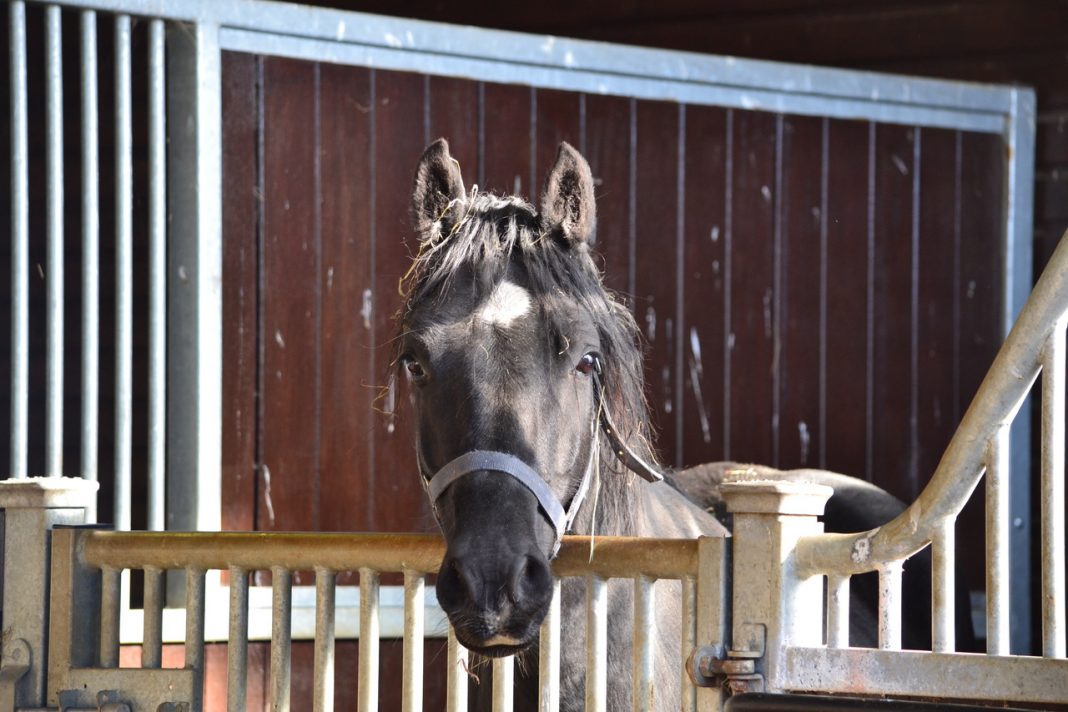A preliminary investigation into the online sale of horses has led national pet charity Blue Cross to call for closer scrutiny of horse sales across the board. In the first instance the charity has issued initial recommendations on how the equine industry can take steps to help reduce potential welfare risks involved with sales.
Currently there are no laws around the selling of animals online. With the UK in the midst of an equine welfare crisis involving too many horses and not enough knowledgeable homes, the ease of online buying and selling is causing some horses to fall into inappropriate hands and an uncertain future. Horse charities are left to pick up the pieces, putting their limited resources under serious strain.
To obtain a clearer view of the numbers and types of horses currently seeking homes via online platforms, Blue Cross recruited a team of volunteers to track six equine classified websites and Facebook, over a period of 12 weeks during August to November of 2017.
A total of 3,340 unique selling adverts were tracked over this time and the contents analysed.
“Selling a horse online appears to be an emerging market,” says Blue Cross education officer Kerry Taylor. “On 22 August alone there were 8,061 ads selling one or more horses on the six classified sites we tracked.”
While 76% of all adverts described a riding horse or pony, 28% of all adverts used terminology that implied the horse was not straightforward, needed work, was young and inexperienced, or displayed behavioural problems.
“Although this might not cause a problem for an experienced, knowledgeable home,” says Kerry, “it could make it hard to assess the horse accurately in a short period of time when looking to buy. This could lead to buyers purchasing a horse that is unsuitable for them, raising concerns about the future welfare of such animals and potential safety risks for the purchasers.”
Amy West* is one such owner. She bought a 17.1hh Irish Draught X via an online advert. He was sold as having been backed as a three-year-old and left to mature. He was described as easy to handle. Amy, who is an experienced rider took things slowly and gave the horse six months of groundwork training but he took off when long reined and bucked his rider off persistently. Amy eventually uncovered the horse’s past and found that he had been in several loan homes and had been taken back by the seller because of behavioural issues.
Blue Cross also identified the promotion of breeding as a cause for concern in online advertisements. Although the number of horses listed with a potential use for breeding was small, at 1%, the quality of such adverts flagged health and welfare concerns.
One mare advertised as suitable as a companion or broodmare was described as permanently lame with a previously broken pelvis rendering her unrideable. However, the advert went on to say that ‘it doesn’t impact on her ability to be bred from and she foaled fine this year with no assistance.’
“This is a grave welfare concern and an example of passive promotion of indiscriminate breeding,” says Kerry. “In no capacity is it acceptable to advertise a severely injured animal for breeding purposes.”
Blue Cross is currently campaigning for urgent change legislation to protect the tens of thousands of small animals sold online each year. While the charity is aware that the breeding and sales of horses holds many differences to the sales of small animals such as dogs and cats it believes that the horse sales situation in the UK needs a form of regulation.
Blue Cross has produced initial recommendations on how the UK’s horse industry can make a start in addressing some of the potential welfare concerns raised:
- Further research: Investigate other selling mechanisms for horses such as auctions and markets, to build a fuller picture of the UK’s horse market.
- Legislation: Continue to push government to develop regulations around online sales of pets, to help safeguard horses health and welfare alongside other species.
- Education: Develop further education on the responsibilities of owning a horse and what to consider before people take that next step. Create practical tips for people who look to purchase a horse online, to help ensure an informed purchase process.
- Explore best practice: Look at horse ownership legislation in other countries to share best practice and ensure our UK horse industry isn’t left behind with the development of forward thinking strategies to improve horse ownership and welfare.
Kerry added: “Blue Cross is urging government to address the growing issues around the online sale of pets and look more closely at the particular problems horse owners face when buying and selling online and the subsequent welfare concerns that can arise.
“Education is also key to tackling this problem and we hope our research and advice will encourage new horse owners to make a more informed choice.”
To find out more and to download essential guidance on buying a horse visit https://www.bluecross.org.uk/onlinehorsesales
*the owner did not wish her real name to be used
Blue Cross Top tips for buying a horse
- Research – horses are a huge commitment, so it is really important to think carefully about whether you have the time, dedication, requisite knowledge and money to care for a horse properly. If you do decide to become a horse owner, really take the time to consider the right horse for your circumstances and experience. First think about what you want to do with your horse, the best breeds for your chosen equestrian pursuits, the age and experience of the horse that you feel you will be most comfortable with and your budget. Taking the time at this stage can help you pick the most suitable horse for you to give you the best chance of a happy future together. Don’t rule out rehoming from a welfare charity. We have some wonderful horses searching for homes.
- Be rigorous – Once you have identified a potentially suitable horse to visit, ask questions, as many questions as you can. Make use of that initial call and set expectations of what you will want to see the horse do. Trust your gut and remember you are in control; it is your decision. Never purchase a horse without seeing it first and try not to be led with your heart rather than your head. You are better to walk away if unsure, but if you are concerned about a horse’s health or welfare then contact a horse charity for advice.
- Set them up for the future – once you have purchased your horse, give him or her time. Let them settle and ask the previous owner as much about their current management as possible. A new environment can be stressful for a horse so keeping parts of their routine the same might help them settle. If you have concerns about your new horse, it may be helpful to contact the owner again to ask for some advice. You could also speak to a reputable behaviourist. Many unwanted behaviours displayed by a horse might be down to unsuitable management, or pain, so these things need to be ruled out before any improvements can take place.
For more information on purchasing a horse please visit https://www.bluecross.org.uk/onlinehorsesales











